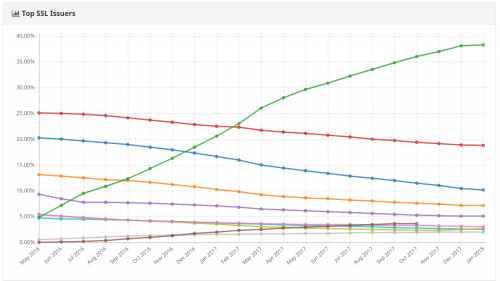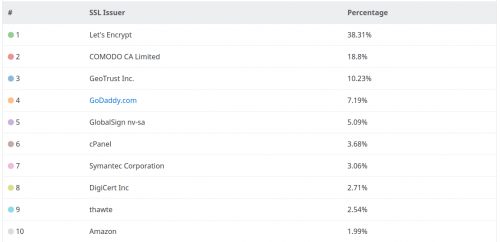Netrack reports some statistics for the Top SSL Issuers, and it’s nice to see Let’s Encrypt leading the race with a significant advantage over the rest. Well done, ladies and gentlemen!
Category: Web work
These days, most of my work is very related to the online world. Building web sites, reviewing web applications, integrating with web services, coordinating people who are far away from each other, etc. Whenever I find a new tool or service or an innovative, interesting idea about working online, I share it in this category.
You fired your top talent. I hope you’re happy.
“You fired your top talent. I hope you’re happy.” is a response to “We fired our top talent. Best decision we ever made.” article. It’s one of the best things I’ve read all through last year.
GitHub GraphQL API v4
I’ve briefly mentioned before that GitHub joined the adopters of the GraphQL for their API. Here’s the link to the full documentation and more details.
GitHub chose GraphQL for our API v4 because it offers significantly more flexibility for our integrators. The ability to define precisely the data you want—and only the data you want—is a powerful advantage over the REST API v3 endpoints. GraphQL lets you replace multiple REST requests with a single call to fetch the data you specify.
The Strange Art of Writing Release Notes
Software development is never just about writing code. Programming is only a small part of the software development work. The rest touches and intervenes with a whole lot of other areas – documentation, support, testing, marketing, and so on and so forth. Recently, Slashdot ran this story on the art of writing release notes. There are a couple of links from the story to this article on IEEE and this on TechCrunch.
These provide a lot to think about, at least for someone who wrote nearly 300 release notes just this year alone (yeah, we had to catch up on historical releases).
MySQL optimize, repair, and analyze
Years ago I had the following script running as a cron job, but then I lost it somewhere. It took me a few minutes to find it again, but just in case I need it in the future, I’m saving it here.
#!/bin/bash mysqlcheck --all-databases mysqlcheck --all-databases -o mysqlcheck --all-databases --auto-repair mysqlcheck --all-databases --analyze
Found it here this time.


